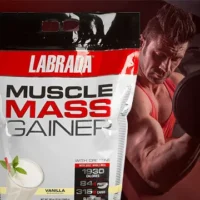Knowledge BaseYou're Questions Answered
BACK
Does whey protein increase testosterone?
Whey protein is a popular dietary supplement commonly used to support muscle growth, recovery, and overall protein intake. However, there is often curiosity about whether whey protein can directly influence testosterone levels, particularly among men looking to optimize their hormonal health and athletic performance. Below, we explore the relationship between whey protein and testosterone levels.
The Impact of Whey Protein on Testosterone Levels
- Whey Protein and Testosterone
There is no direct evidence to suggest that whey protein increases testosterone levels. Whey protein is a high-quality source of protein that provides essential amino acids, which are crucial for muscle repair and growth, but it does not contain compounds known to directly stimulate testosterone production. The primary role of whey protein in the body is to support muscle protein synthesis rather than to influence hormone levels. - Protein Intake and Hormonal Balance
Maintaining adequate protein intake is essential for overall health, including hormonal balance. However, excessively high protein intake without sufficient dietary fats and carbohydrates can potentially lead to a reduction in testosterone levels. This is because testosterone production requires dietary fats, particularly cholesterol, as a precursor. Therefore, while whey protein is beneficial for muscle growth, it should be consumed as part of a balanced diet that includes adequate fats and carbohydrates to support optimal testosterone levels. - Exercise, Whey Protein, and Testosterone
Engaging in resistance training, particularly heavy lifting, is known to increase testosterone levels temporarily. Consuming whey protein post-exercise can support muscle recovery and growth, which indirectly contributes to maintaining healthy testosterone levels by promoting muscle mass and reducing fat mass. However, the increase in testosterone is primarily due to the exercise itself, not the whey protein consumption. - Other Factors Affecting Testosterone
Testosterone levels are influenced by a variety of factors, including age, genetics, sleep, stress levels, and overall diet. While whey protein can support muscle mass and recovery, which are beneficial for maintaining healthy testosterone levels, it is not a hormone booster. For individuals concerned about low testosterone levels, focusing on overall lifestyle factors such as adequate sleep, stress management, and a balanced diet is more impactful than relying on protein supplementation alone.
Considerations
- Balanced Diet
To support healthy testosterone levels, it is important to maintain a balanced diet that includes not only protein but also healthy fats and carbohydrates. Dietary fats are essential for hormone production, including testosterone. - Exercise and Lifestyle
Regular exercise, particularly resistance training, combined with adequate recovery and sleep, plays a crucial role in maintaining healthy testosterone levels. Whey protein can support recovery but should be part of a broader approach to health and fitness. - Avoiding Myths
It's important to avoid common myths and misconceptions about supplements and hormone levels. While whey protein is effective for muscle recovery, it is not a direct method for increasing testosterone.
Was this answer helpful? Let us know!
Like
Add to this Answer
Related Questions
Protein vs Protein

Disclosure
Your Answer
Do you have a suggestion to improve the answer? Please detail your suggestions and provide any references to information that may support your answer if available.
The content on this site has not been written, reviewed or endorsed by a medical professional. We assume no liability for the misuse of supplements and recommend you review the label of any product, as well as consulting with your health care professional.
We are a participant in the Amazon Services LLC Associates Program, an affiliate advertising program designed to provide a means for us to earn fees by linking to Amazon.com and affiliated sites.
We are a participant in the Amazon Services LLC Associates Program, an affiliate advertising program designed to provide a means for us to earn fees by linking to Amazon.com and affiliated sites.
© 2026 ProteinPowder.com


